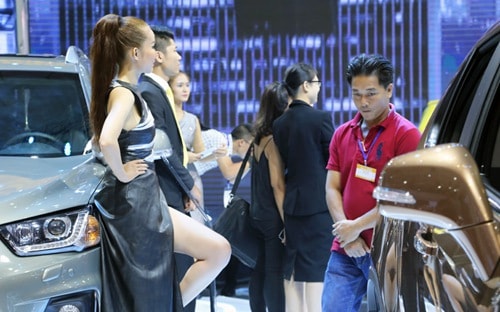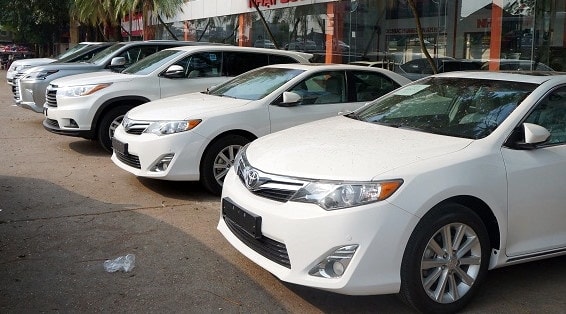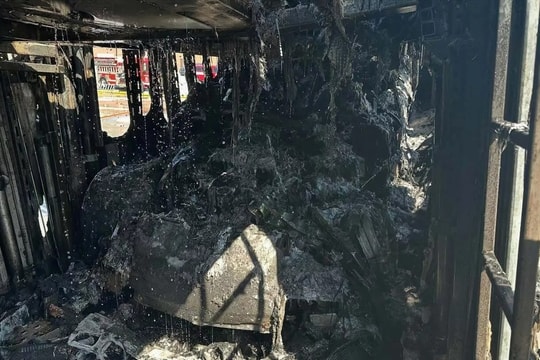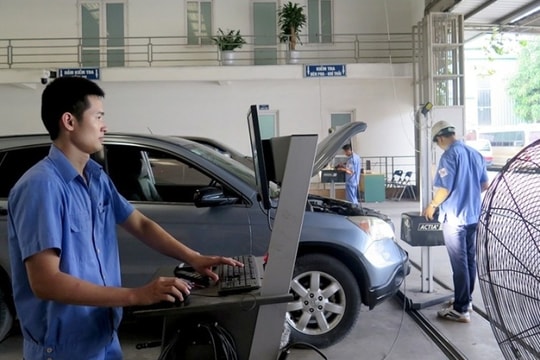Car price 'chess game': Waiting for checkmate
The final "chess game" of the auto marketThe decisive game for a big prize is already on the table of the Vietnamese auto market...
The Vietnamese automobile market in 2017 is like a final “chess game” between the players, which are automobile manufacturers and distributors, and the consumers. The decisive game with a big prize already placed on the table, has put both sides in difficult positions.
 |
| By this time, the retail prices of popular cars had really dropped to very low levels and so consumers had more or less "absorbed" the impact. |
A suffocating chess game
2017 is the final period for car manufacturers to prepare for a turning point, before the import tax rate on completely built-up (CBU) cars originating from ASEAN countries is reduced to 0%.
Although not all ASEAN imported cars will enjoy this tax rate and the car price scenario will not be as simple as 1 + 1 = 2, at least it paints a picture that consumers will certainly have high expectations. That has put car manufacturers in a somewhat passive position.
Meanwhile, faced with a prospect that is said to be rosy, consumers can completely put themselves in a proactive position, ready to wait to receive results that are beneficial to their shopping needs.
Therefore, when the game officially started, both sides had slow opening moves.
As soon as they enter the market, the most basic attacks are carried out by car manufacturers by launching a series of moderate discount and promotion programs. This "provocation" move aims to put consumers in a position to respond by joining the shopping game.
However, the prospect of a price cut in 2018 is somewhat overwhelming, at least psychologically. That is why consumers continue to defend their positions with sure moves. Even though car manufacturers have intentionally "exposed" their weak moves with strong price cuts and promotions, consumers are not enthusiastic about participating in the market right away.
As a result, both consumers and car manufacturers are stuck in a difficult position. Every move is difficult because it is not certain to bring the desired results.
Even up to this point, that is, just over 3 months until the clock officially points to 2018, consumers continue to wait.
After the price reduction storm, car companies continued to launch price reductions and promotions, although smaller but lasting as long as the rainy season. By this time, the retail prices of popular cars had really dropped to a very low level and so, consumers had more or less "absorbed" it.
In August 2017, the total purchasing power of cars in the whole market increased by 12% compared to the previous month, although it was still quite low compared to the same period last year. In September, the stimulus packages continued and car purchasing power can be expected to continue to recover.
Unpredictable scenario
Accepting to hold back from the beginning of the year until now, car manufacturers have also begun to gain advantages for the next moves in their game. On the opposite side, the solid defense since the beginning of the year until now has also begun to show results, that is, car prices have been forced to drop very low, especially compared to the period from 2016 and before.
At first glance, the moves of both consumers and car manufacturers have begun to be more open, no longer defensive, suffocatingly sure as before. But the scenario of the final game in the 2017 car market is still really difficult to predict and perhaps, the result will only be imagined until the final "checkmate" move.
In fact, the chess game - cars - that is taking place in a tense manner is not set up by consumers or car manufacturers, but they are just "chess players" forced to sit in the game. The chess setter is none other than the ASEAN Trade in Goods Agreement (ATIGA), or in other words, the Governments of the Southeast Asian countries.
Perhaps, it was the passive mentality when entering the game that made both players cautious, even though the reward was not small.
However, in the game, although it is not clear, the car manufacturers still have some advantage. The car manufacturers know more about the details of tax policy, about each type of car with different tax rates and they can proactively provide products that they see more profit. That means the car manufacturers are the ones who can calculate the moves further than the consumers.
 |
| Many car companies have made the first decisive move: Lowering prices, offering huge car promotions. |
The proof is that along with the rapid price moves, car companies are still preparing plans for the final checkmate and also for plans to take advantage of the results of the game.
With a flurry of price cuts and demand stimulation, it is clear that car manufacturers are waiting for the launch of some completely imported car models from Thailand and Indonesia in 2018. These are all car models that will enjoy a 0% import tax rate according to the regulations of ATIGA.
However, it can also be seen that the number of these car models is not much, even counting on the fingers is redundant.
This shows that the scenario of a forced price reduction in the auto market from 2018 is unclear. Besides, it is almost certain that the price reduction story will more or less cause disappointment to consumers, especially to the group of consumers who have been and are still willing to ignore the price storm to wait.
Not to mention, along with the need to own a car, each consumer has their own preferences or needs suitable for each type of car. Meanwhile, as mentioned above, the number of car models enjoying 0% tax is very small because all of those cars must meet an important condition of a localization rate of 40% or more.
As the “game” gets closer to the final move, the consumer’s advantage seems to be getting smaller. Assuming that the 2018 price reduction scenario ends up not as expected, that is, the overall price reduction rate is not lower than the current time, the consumer will be the one to suffer the loss.
However, it is also possible that car manufacturers will be forced to reduce their product portfolios that do not benefit from the tax in order to increase the number of models imported from ASEAN with a 0% tax rate. In that case, the suppression of consumer demand will bring about positive results.
However, when the game is not over, the result is still just a prediction and the player still has to wait for the checkmate to end the game.
According to Duc Tho/vneconomy
| RELATED NEWS |
|---|








